Donald Trump, Great Britain, And The Special Relationship
The Trump Era is raising doubts about many things, including America's most important alliance.
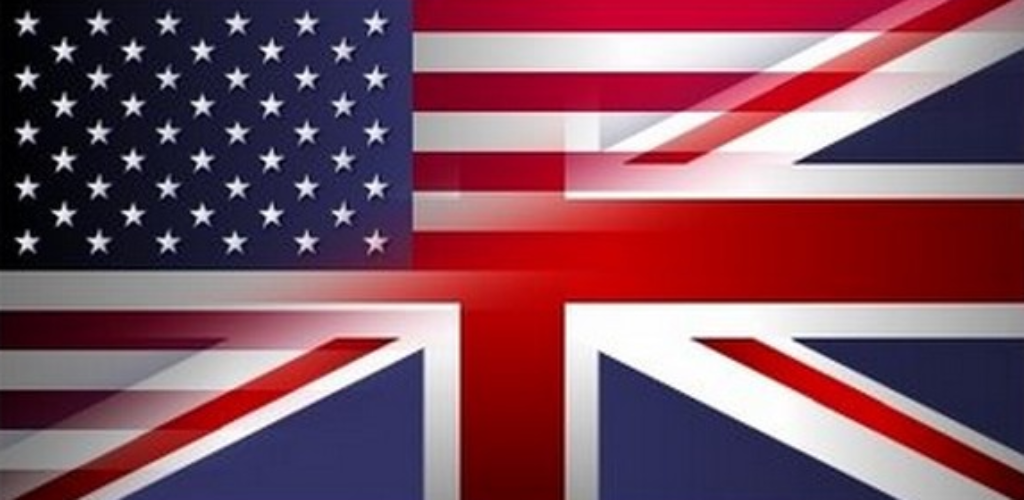
The recent resignation of British Ambassador Kim Darroch after the revelation of cables in which he referred to President Trump in derogatory terms leads Dan Balz at The Washington Post to declare that the “special relationship” between the United States and the United Kingdom is in ‘tatters’:
The once “special relationship” between the United States and Great Britain is in tatters, shredded by the fallout from the 2016 Brexit referendum and President Trump’s determination to intervene in the politics of another country. If it improves, it likely will be on terms set by the president.
Wednesday’s resignation under fire by Kim Darroch, the British ambassador to the United States, represents a new low point in recent relations between the two countries. Leaked cables from Darroch back to his government that included critical comments about Trump and his administration were the ambassador’s undoing. Trump saw an opportunity to embarrass the British government and drive the wedge more firmly between the two countries.
Darroch’s resignation has caused an understandable uproar in Britain. Ahead of his decision to resign, he received strong support from outgoing Prime Minister Theresa May. In the aftermath of his letter of resignation, he has received an outpouring of praise from many others in the government, who said he had acted with utmost professionalism in providing candid analysis of the state of affairs in Washington. They blamed the leaker for taking revenge against the government.
(…)
Darroch’s resignation has forced a moment of reflection, a moment of reckoning, in the relationship between the longtime allies. The traditional ties — cooperation on defense and intelligence issues, cultural relations and all the rest — will continue apace. British and U.S. government officials will do their work as they have tried to do it for years, cordially and professionally.
But with Trump in the White House and operating as no president has before — throwing his weight around to try to force other independent actors to do what he wants — and with Brexit still unresolved and now the major fault line in British politics, the relationship between the two countries faces a period of severe strain and possible remaking. Right now, Trump appears to have the upper hand in all this, and it will be left to the next leader of Britain to find that country’s new equilibrium.
Balz makes a good point here, of course, but it doesn’t just apply to the relationship between the United States and the United Kingdom. This is, after all, a President who has spent the better part of his two and a half years in office doing everything that he can to ruin our relationships with allies such as the United Kingdom, France, Germany, and Japan, something that I have made note of several times here at OTB — see here, here, here, and here — and the extent to which he has succeeded in driving a wedge between the United States and its most important allies. He’s even managed to accomplish the seemingly impossible and piss off the Canadians on several occasions. Additionally, he has repudiated international agreements that were working as they were intended to such as the Trans-Pacific Partnership, the Paris Climate Accords, and the Joint Comprehensive Plan of Action, and thereby sent the message that the United States simply cannot be trusted to keep its agreements or to be the force for international stability. He has largely abandoned the idea that the United States should stand out as a champion of human rights and the Rule Of Law, and looked the other way while authoritarian rulers such as Vladimir Putin, Kim Jong Un, and Mohammed bin Salman murder journalists, dissidents, and anyone who threatens their hold on power. He has expressed obvious admiration for dictators in Russia, China, North Korea, Egypt, The Philippines, and Saudi Arabia. Finally, he has demonstrated that he has no understanding of the norms of diplomacy and shows no inclination of wanting Given all of this, one must say that Ambassador Darroch’s words were if anything, understated and even a bit too diplomatic.
Writing at The Guardian, though, Michael Fuchs has a different perspective, arguing that the relationship isn’t broken but it is entering dangerous territory with the potential rise of Boris Johnson as the next Prime Minister:
In a time when partisan politics creates gridlock in DC and polarization makes it more and more difficult to have a constructive national conversation about substantive issues, the daily conduct of the president of the United States makes that of a toddler appear mature by comparison. (I’m a parent of a five-year-old. I know these things.) It is still shocking, but far from surprising, that an American president taking to Twitter to call the ambassador of a US ally a “pompous fool” will pass from the news cycle within days.
Politics in the UK are hardly better. When the UK voted to leave the European Union in 2016, it was as if the country had hit a national self-destruct button. Ever since, the fuse has been burning and every attempt made to mitigate the damage or to change course so far has been as useless as that person waiting for an elevator who keeps hitting the call button but knows it won’t do anything. A country that was a global empire not too long ago and remains one of the top 10 economies in the world now looks – save a massive course correction – to be on the path to global irrelevance.
(…)
This is in part because radical and reckless rightwing incompetents are taking over the UK government too. When asked about whether he would keep Darroch in Washington, British member of parliament and presumed next prime minister Boris Johnson threw Darroch under the bus. In doing so, Johnson made clear that his priority was not his nation, but rather his own interests of being prime minister and having a good relationship with Trump. After that, Darroch knew it was time to go. As one article in this paper put it, Darroch was “effectively sacked by Johnson on the orders of Trump”. Speculation in Washington now swirls about whether Johnson would appoint arch-Brexiteer – and Trump favorite – Nigel Farage as UK ambassador.
The disastrous effects of both countries’ domestic politics aside, the Darroch incident is a vivid illustration of how Trump’s twitter tirades cause real harm to the US. Trump’s visits to the UK have been delayed because of massive protests. His insults of the UK – culminating in the Darroch affair – have now made it politically expedient for some British politicians to stand up to the US president.
Again, no surprise. In Trump’s Washington, this is how US allies are treated. Trump’s fondness for dictators and disdain for democratic allies is well known, and the impacts on American alliances beyond the UK have been real. Trump’s policies and repeated criticism of Germany’s chancellor, Angela Merkel, caused a German foreign minister to call for a European strategy to push back against Trump’s America. The relationship between France’s president, Emmanuel Macron, and Trump has soured and erupted into open hostility.
In fact, the only positive relationships Trump seems capable of maintaining are with autocrats and populists. All of this plays into Russia’s goals of undermining European and American democracies and Nato – and it’s no coincidence, since Russia is actively meddling in American, UK and European politics.
But neither Trump nor those in the UK like Farage and Johnson, who take a “burn it all down” approach to politics, seem to care about what’s happening to their countries or to the alliance. For the rightwing populists on both sides of the pond, the political nosedives in motion in each country are bringing the rightwing populist movements in the US and the UK closer together.
The US-UK special relationship may very well be entering a new, especially dangerous, phase.
Fuchs has a point here. Johnson and Trump have had many complimentary things to say about each other, and they both seem to share in the same populist, nationalist rhetoric. Being British, Johnson’s rhetoric is more subdued perhaps than Trump’s, but it’s fairly clear that he has the same sort of disdain for multi-lateral international alliances that the President does. Given that, it’s likely that Trump will find it easier to work together with Johnson than he did with May, with whom he had very little in common and who it was clear that the President did not take seriously as an equal on the world stage not to mention as the leader of one of our closest and most important allies. To that degree, the “special relationship” is likely to at least appear to be stronger simply because Trump and Johnson have a better personal relationship.
What’s dengerous though is the fact that both men represent the rise, or perhaps it’s better to say the return, of a form of right-wing populist nationalism that has largely been out of style since the Second World War. For Great Britain, of course, the price of that form of politics became apparent in the years leading up to the Second World War when the nation found itself unprepared to effectively confront a revanchist Germany when it possibly could have been stopped from the course that led Europe to the bloodiest war in history. In the United States, Trumpism effectively represents a return to what conservatism was before the Second World War and the Cold War when the American right was dominated by isolationism, nationalism, and the bigotry of people like Charles Lindbergh and Father Charles Coughlin.
That form of conservatism continued to exist after the war, of course, but the reality of the Cold War and the rise of modern conservatism as conceived by figures like Russell Kirk and William F. Buckley Jr. became the dominant movement on the right, and which eventually led to the exclusion of groups such as the John Birch Society from what became “movement conservatism.” Now, that nationalist, populist conservatism is back, and it’s in power in the form of Donald Trump and the sycophants in the Republican Party who continue to tolerate and support him.
The prospect of both the United States and the United Kingdom being dominated by essentially the same form of right-wing populism should give pause to everyone just as it does Fuchs. Where the United States and the United Kingdom once stood together as champions of the Rule of Law and human rights, the prospect now exists that both countries will become more insular and far less concerned about what happens in the rest of the world. If that happens, then the prospect for international disorder, with all that means, becomes significantly larger.
The good news, perhaps, is that both nations are close to a point where elections could end up in changes in power that stop this transition. However, that depends on the Democrats not being dragged too far to the left to win a national election and Labour coming to its senses and realizes that it is unlikely to win a General Election as long as Jeremy Corbyn is their leader. Unfortunately, both parties have a history of pulling defeat from the jaws of victory so there’s no telling what’s going to happen.

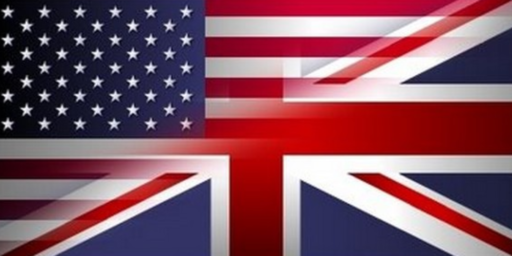
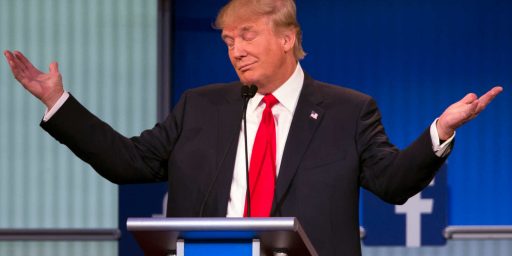
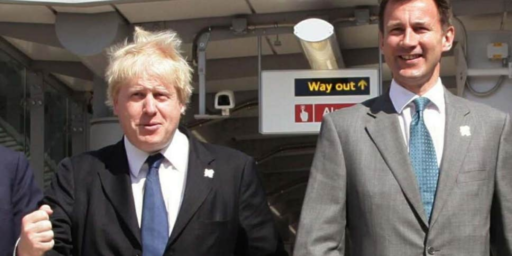

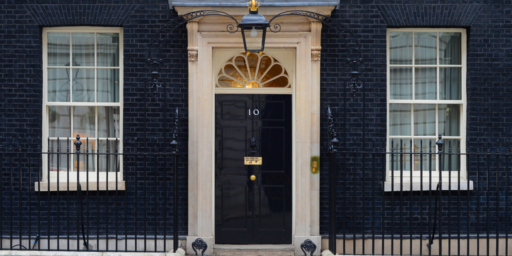
In the Dana Carvey sense of “Well isn’t that special?”.
Wait till the UK sees the conditions Tiny will set for a trade deal after Brexit. Rename Buckingham Palace, the Trump Palace? Have the Brits start driving on the right hand side of the road so they can buy US cars?
The special relationship has been fraying for several decades, but it has finally reached the point where the damage can no longer be denied.
What’s going to happen is a) Boris will be elected PM by the Tories, b) he’s going to bluster and insist that he’s going to get a “really good deal” from Trump all the while finishing off the whole Brexit affair c) Boris’s lack of preparation means he will just shove anything out to the EU….depending on how much he’s insulted the EU the week before, the EU may try to provide a thin skin of “change” before sending BoJo back to Parliament to get a version of the WA passed, but their recent abruptness makes me think they’re just as happy to not go for any further extensions and to let the UK storm its way out the end of October.
And yeah, I suspect that any FTA between the US and the UK will be along the lines of “we will do anything you want, signed, Boris.” Including privatising the NHS, opening the U.K. market to US meats (and no, not allowing place-of-origin stickers, because the US won’t want them). I suspect also that at some point Trump will go too far and try to push the U.K. into doing something they really don’t like (a war with Iran, with the Brits contributing money and soldiers, for example), and the government will fall.
Corbyn will continue to misguide the Labour Party and it will continue to lose people to the LibDems and the Greens.
What will happen to The Brexit Party…..I suspect that after the U.K. leaves the EU there will start to be a lot of catfighting and splitting in TBP. Also depends a lot of how mischievous Farage feels. He’s another demagogue. The question is whether he will be happy with being shoved off as being an ambassador to the U.S.
Heh. I remember when Obama is abandoning our allies was a Republican talking point.
@Moosebreath:
Not just that. The “conservatives” who commented OTB shit the bed when Obama commited major policy faux pas:
– Returned a bust of Churchill (in accordance to the load agreement)
– Spoke over the band in a toast to a Queen
– Gave an iPod with a strange selection of songs
Each of those were proof of an attempt to undercut the special relations and an unforgivable breach of protocol.
But of course Obama was a black Democrat. So that was entirely justified in their eyes.
@Moosebreath: “Heh. I remember when Obama is abandoning our allies was a Republican talking point.”
Every accusation is a confession……
@mattbernius: yeah well conservatives wouldn’t have had to make that criticism if Obama had just gone back to Kenya in 2012 like they wanted.
Totally not racist. You’re the racist! 😛
It is rational to expect the leaders of the US to pursue America’s interests, and the leaders of the UK to follow the interests of their nation. These goals will not always be identical. The US broke sharply with Britain, and France and Israel, during the Suez Crisis of 1956 when we sided with the Arab world. I suspect that the leaders of the UK thought that Woodrow Wilson was impertinent, and the appointment of an Irish Hollywood bootlegger, Joe Kennedy Sr., to the Court of St. James by FDR was a shocker.
Of course, we must recognize that it is in our, and all others, best interests to maintain cordial relations with all sane regimes. We should not follow another nation meekly, nor should we expect anyone to follow us blindly.
@Slugger:
Well, that leaves the US out.